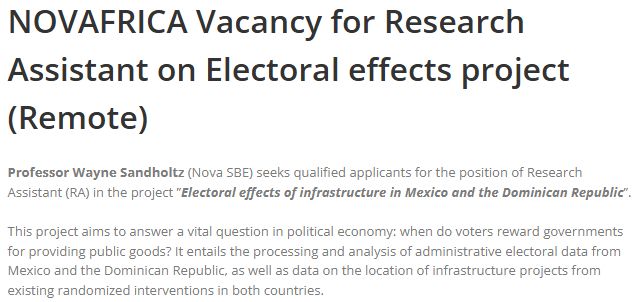
Dad. Assistant Prof of Economics at @NovaSBE. PhD @UCSDEcon, BA @BYUEcon. Interested in development, education, and political economy. He. Him.






So much for voters rewarding service quality, right??
Wrong. I'm an economist. There is nuance. 6/n

So much for voters rewarding service quality, right??
Wrong. I'm an economist. There is nuance. 6/n







